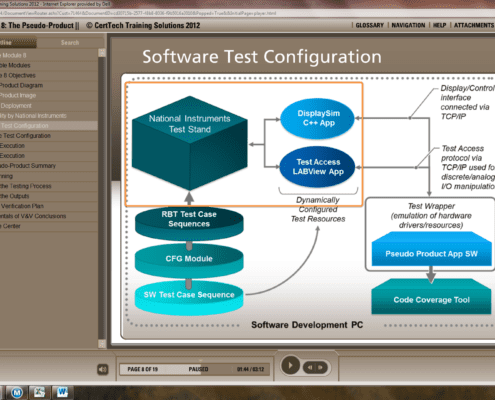Course #202: Fundamentals of Verification and Validation in Software Development
Course Summary
This rich-interactive application course is primarily designed for software engineers involved with safety and mission critical projects. The purpose of this course is to provide an overview and an introduction to the concepts of verification and validation in airborne software development. The course also provides you with a review of the concepts behind the internationally recognized guidelines DO-178C in the development of airborne software.
You will explore the importance of independent verification and audits and develop insight into code testing and test case design theory. This online program offers a comprehensive look at software testing and system testing as a combined activity; the highest level of test performed as a verification activity. Validation procedures in software development are also presented. Finally, you will be challenged to write test cases for a variety of scenarios and bring all that you have learned together for a walk-through on verification and validation of a pseudo-product.
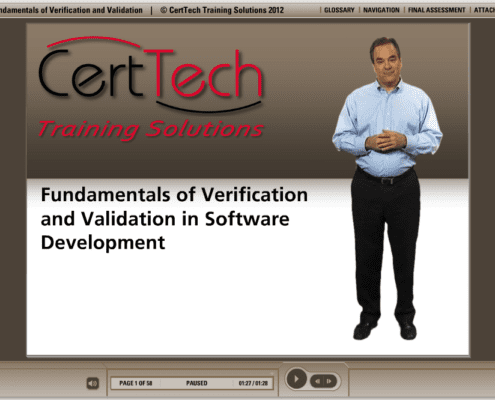
Module 1: An Intro to Verification and Validation in Software Development
Includes: an introduction to the history of DO-178 guidelines in safety and mission-critical industries, a discussion of the software life cycle concept, an explanation of low-level and high-level requirements, a review of software traceability and configuration management, and concludes with an overview of verification and validation in software development.
Runtime: Approximately 50 minutes.
Module 2: Reviews, Audits and Independence
Module 2 will have you join a virtual review team. You will learn about reviews, walkthroughs, audits and inspections. The audits portion of the course will examine the software life cycle model process and outputs to confirm attributes. Our resident Designated Engineering Representative (DER) will interact with you on audit questions.
Runtime: Approximately 45 minutes.
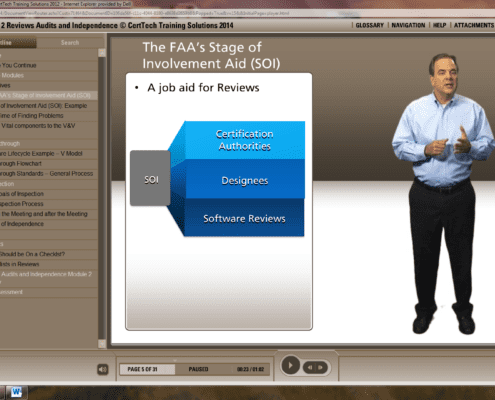
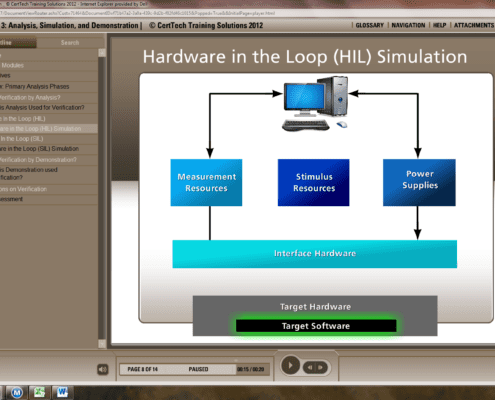
Module 3: Analysis, Simulation and Demonstration
We present a look at verification by analysis, what it is composed of and when this process is appropriate for use. The simulation section examines hardware in the loop (HIL) and software in the loop (SIL) simulations, including fully-interactive simulations. Finally, module three includes a look at verification by demonstration and what conditions dictate its use.
Runtime: Approximately 25 minutes.
Module 4: Testing and Test Case Design Theory
In Module 4 you will attend a lecture in the Genuen Training Solution’s Virtual Auditorium on the subject of software testing and test case design theory. Our ‘virtual guest lecturer” investigates considerations and issues around test design theory, and outlines the attributes of an “effective” test. In addition, she presents a case on how to use equivalence class and boundary values to define test parameters and deal with the challenge of “exhaustive test coverage”. We will identify our 14-Step Process for Test Case Selection.
Runtime: Approximately 45 minutes.
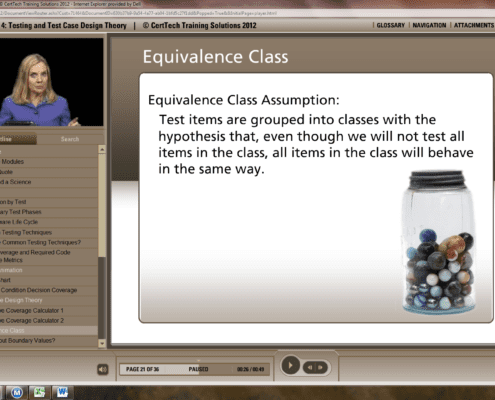
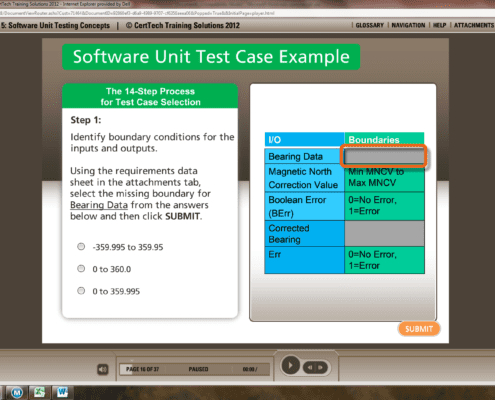
Module 5: Software Unit Testing Concepts
In Module 5, the program will study the methods for testing code separately, called software unit testing. We will explore requirements, statement and decision coverage in software unit testing and how this is sometimes the only practical method for achieving modified condition decision coverage (MCDC). We will employ our 14-Step Process for Test Case Selection and employ it on a real-world example.
Runtime: Approximately 45 minutes.
Module 6: Software Integration Testing Concepts
Module 6 will present a study of “Big-Bang”, “Top-Down” and “Bottom-Up” software integration test methods. We will examine how the interfaces between modules can present new problems through module conflict, resource demand or timing issues. Our presentation will also focus on data and control coupling and compliance with DO-178C guidelines. Information on “test wrappers” and “stubs” will be presented as we examine integration test techniques. The module continues utilizing the 14-Step Process and how it applies to this level in our real-world example.
Runtime: Approximately 45 minutes.
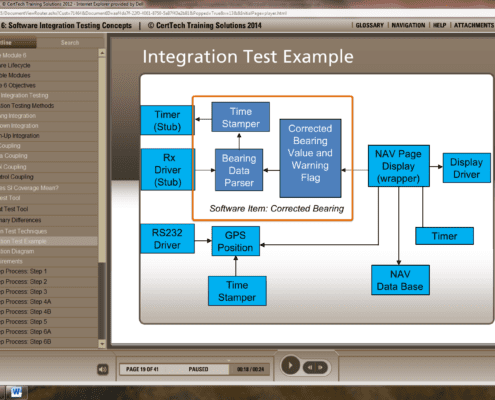
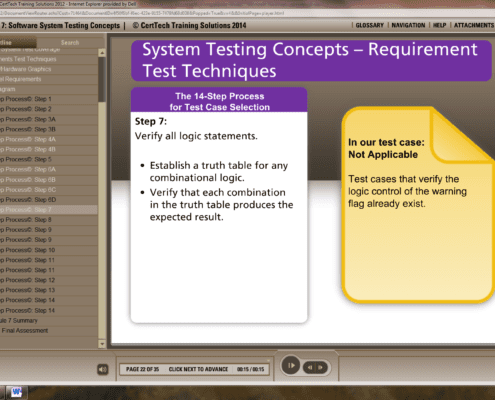
Module 7: System Integration Testing Concepts
Module 7 takes the learner into the combined verification and validation arena where we will present software system and system testing as a combined activity – the highest level of test performed as a verification activity. The module will examine software system requirement test techniques and robustness test techniques, and takes the learner through the 14-Step Process at the software system testing level.
Runtime: Approximately 35 minutes.
Module 8: The Pseudo-Product
Module 8, the final module in our series will target a Pseudo-Product that is specifically designed to provide a basis for the cumulative content presented in the course. We’ll observe requirements analysis, test case development and test execution using common commercial testing tools. Test system design considerations will be presented and discussed, along with the benefits of using abstraction layer design techniques to enhance the portability and maintenance aspects of the requirements based tests.
Runtime: Approximately 20 minutes.
